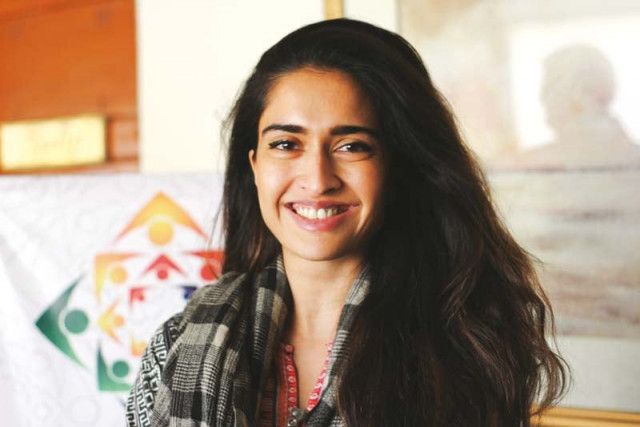Reading Room Project: Beyond teachers and textbooks
Mashall Chaudhri of Reading Room Project helps students from low-income areas self-study through the Internet

Founder of Reading Room Project, Mashall Chaudhri. PHOTO COURTESY: MASHALL CHAUDHRI
With the aim to better train children for the challenges of tomorrow, Karachi-based organisation Reading Room Project (RRP) is helping students use the Internet as an alternative mode of education. In the pilot project launched two years ago, RRP founder and director Mashall Chaudhri introduced Internet-based learning at a school in Karachi’s Shah Faisal Colony, enabling 34 students to seek knowledge beyond traditional means. They were taught how to use the Internet, computers and educational web resources.
It only took a few months for the RRP team to see for themselves the power of digital literacy in facilitating critical thinking and polishing research skills. “The students recognised how learning could become an actionable process outside the world of books and classrooms and decided to evaluate every bit of information that came their way,” shares Chaudhri. She believes education, in its true sense, challenges the mind to think beyond what is being taught. “Children have an excellent intuition and this childlike curiosity should be fostered by giving them the space to think outside the box.”
Though RRP focuses on self-learning and digitalised access to information, Chaudhri recognises the significance of teachers in imparting knowledge to students. “Initially, we wanted to minimise the role of teachers by digitally assisting children, but in time we have come to realise that the support provided by a tutor is irreplaceable. Children need someone to look up to and so do we.”
As RRP continues to equip students with self-study skills, a challenge remains to carry on its process beyond their labs. Working in low-income communities, chances are students will not have access to computers after they graduate from RRP programmes. However, Chaudhri shares how her students prioritise digital needs and persuade their parents to get a computer for them to learn. “We were amazed to see our student, Anum, walk into the lab one day with a computer of her own. Such willingness to learn keeps us motivated.”
The modules are designed to train students in blog writing, Adobe Photoshop and uploading information online, along with several other tools in order to enhance technical skills of students from digitally-backward schools. “We don’t want children with such great potential to be left behind in our technology-driven future,” she says.
In coming years, RRP also intends to share its expertise and content with other schools. “Our plan is to collaborate with non-RRP teachers and schools; so, that the benefits can be passed to more students at the national level,” says Chaudhri. Despite the financial constraints, the organisation has managed to cater almost 200 students since its inception.
Ramsha Jahangir is a freelance writer currently pursuing her bachelors in social sciences. She tweets at @RamshaJahangir
Published in The Express Tribune, Sunday Magazine, November 22nd, 2015.



















COMMENTS
Comments are moderated and generally will be posted if they are on-topic and not abusive.
For more information, please see our Comments FAQ